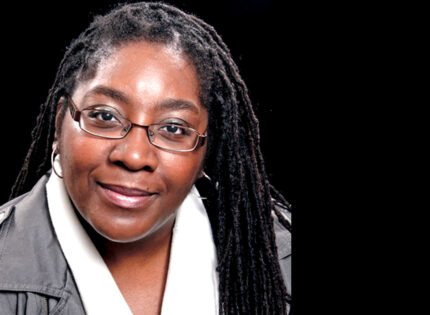By: Dr. Jenilee-Sarah Napoleon, psychologist, Montreal Children’s Hospital
Mental health stigma is a significant barrier for many. However, research has found that individuals from oppressed and marginalized communities are disproportionately more affected. One example of such a group is people from Sub-Saharan African descent.
Historically, the minimization of mental health problems and the reluctance to seek mental health care in Black communities has often been attributed to viewing mental problems as personal weaknesses, which goes against the mentality of tenacity and self-empowerment that stems from centuries of systemic oppression and discrimination.
One’s beliefs about mental illness are shaped by individuals’ experiences, cultural practices, and education.
Some individuals from Black communities encourage keeping issues private and not discussing struggles with others. Some believe that they will be labelled as “crazy,” treated negatively, discriminated against, or socially excluded if others find out about their mental health problems or the fact they sought professional support.
Also, for many, speaking up about a mental health difficulty or seeking treatment can be seen as going against religious practices and beliefs, which are more prominent in Black communities as religion represents a source of resilience.
In some faith-based interpretations, mental illness can be attributed to evil spirits or a result of sin and seeking treatment can be seen as a lack of faith or a result of neglecting prayer. Regardless of beliefs, this stigma may cause a delay in asking for services or prevent many individuals from seeking treatment altogether. It is common to hear statements like “Black people don’t go to therapy.”
As more and more individuals from the community speak up about their experiences and help educate others, the stigma can be reduced. This could increase the likelihood that people with mental health challenges will seek and welcome treatment.
Education around mental illness and the normalization of mental health problems can also help individuals recognize that treating a mental health problem is not more shameful than treating a physical health problem, especially when considering that the two are interconnected.
As a pediatric psychologist at The Montreal Children’s Hospital, I am part of multidisciplinary teams where each professional has within their expertise that fit in the overall care of the youth we treat.
Among the many acts that are performed, examples may include medical interventions by the physician, strengthening and physical reconditioning by the physiotherapist, and relieving life stressors that can complicate a treatment or condition by the social worker.
I may come in as a psychologist to help the child adjust to their illness by evaluating and treating the possible behavioral and emotional components with which they have difficulty. This is done by working in a flexible manner, without judgment of beliefs, and by knowing that each patient and their family has a unique history, possible barriers, and perception of what has happened.
I aim to build an alliance and work together with the individual to come up with treatment objectives to help adjust to the difficulties presented.
When confronted with mental health difficulties, individuals do not need silence, they need professional support, which can build on protective factors that they already possess. The openness to receive support can be initiated by rethinking one’s beliefs about experiencing mental health difficulties.
Mental illness does not discriminate, it does not know race, age or religion.
Therefore, it is more advantageous to have as many experienced team players as possible to support our youth and welcoming those with an expertise in mental health can be beneficial. There is no health without mental health.
Please help The Montreal Children’s Hospital get its young patients back on their feet and bursting with energy again. Donate: Fondationduchildren.com.











